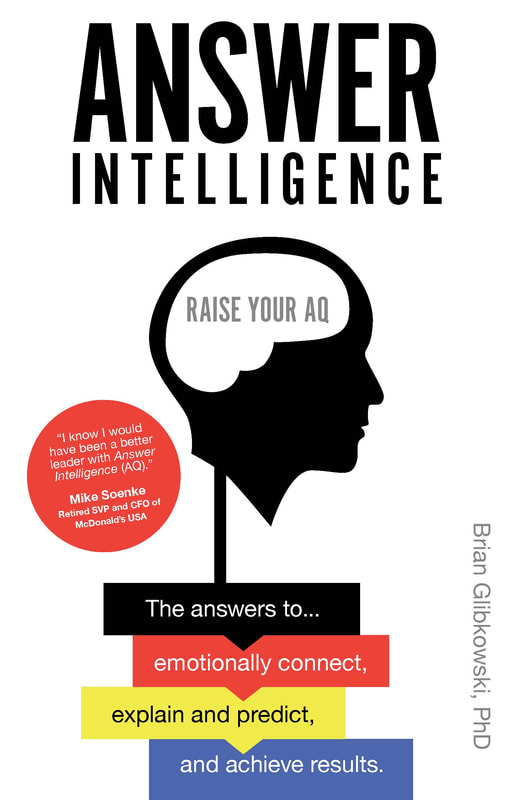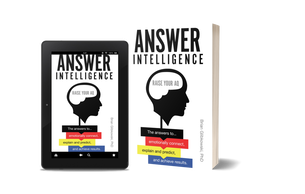Introducing AQAQ CAME FROM THE GOLF COURSE
Answer Intelligence (AQ) is based upon peer reviewed academic research of Dr. Glibkowski. In-depth interviews were conducted with 25 of the top golf instructors in the world as rated by Golf Digest and Golf Magazine. There are over 20,000 golf instructors in the USA, therefore this was an expert study of golf instructors in the upper half of the 99th percentile. The research identified how experts communicate answers to influence others |
The best way to learn about AQ is trying a FREE Explore AQ Assessment.
Or keep on scrolling if you prefer to watch and read about AQ ...
Anchor Element
Copy for linking on the same page:
https://www.raiseyouraq.com/learn.html?data-scroll-to-anchor=tedx
Copy for linking from an external page:
https://www.raiseyouraq.com/learn.html?data-anchor-link=tedx
|
AQ Introduced to the World
In 2018, the academic research was extended and introduced to the world at TEDxGeorgiaTech. This 16 minute video is a great way to learn about AQ for the first time.
|
|
Anchor Element
Copy for linking on the same page:
https://www.raiseyouraq.com/learn.html?data-scroll-to-anchor=book
Copy for linking from an external page:
https://www.raiseyouraq.com/learn.html?data-anchor-link=book
The Book
AQ is based on peer-reviewed academic research. The science of answers is captured in a book written for the business community.
|
Shortlisted for The Business Book Awards 2022: Smart Thinking category
In a business world and society focused upon questions, there has been an underappreciation of answers in capturing our attention, imagination and critical examination. In a complex and fast-moving world, Answer Intelligence (AQ) is our ability to provide elevated answers to emotionally connect, explain and predict, and achieve results. Answer Intelligence: Raise your AQ is a book about six answers: story, metaphor, theory, concept, procedure, and action. By fully incorporating questions into those answers, Brian Glibkowski showcases how readers can not only elevate their understanding of questions and answers, but also reimagine what it means to communicate effectively. The book identifies five High AQ practices that distinguish expert communicators. Featuring chapters which each cover a different form of AQ such as Sales AQ, Interview AQ, Coaching AQ, and more, the book includes real-life examples of elevated answers. With contributions from representatives of organizations such as Salesforce, Center for Healthcare Innovation, Boston Mutual Life Insurance, as well as academics, the book provides comprehensive insight into AQ from across the professional and research spaces. Publisher: Emerald Publishing, UK |
James Kaikis, CoFounder,
PreSales Collective
PreSales Collective
The Sales AQ chapter is incredibly powerful because it makes sense of existing sales research, amplifies it, and provides a new AQ framework for sales teams to have more tailored conversations. The result is better customer-experiences.
Sandy J. Wayne, Ph.D., Professor of Management, University of Illinois at Chicago (UIC)
Interview AQ is important preparation for any student entering the job market.
Mike Soenke, retired DOW 30 SVP and USA CFO
In all of my years in the corporate world, I never saw anything in my career like AQ. There are many resources about questions and proactive communication, but not a lot on the most effective ways to connect and respond by providing answers.
Tom Gimbel, President & CEO, LaSalle Network
This book is a must read for anyone in business. Brian Glibkowski and his chapter co-authors really have answered many of the questions that corporate leaders have been battling forever.
Anchor Element
Copy for linking on the same page:
https://www.raiseyouraq.com/learn.html?data-scroll-to-anchor=fivepractices
Copy for linking from an external page:
https://www.raiseyouraq.com/learn.html?data-anchor-link=fivepractices
The High AQ Skill Set
anchor: HighAQ
Answer Twice Case
|
Answer Twice (HIGH AQ SKILL 3) is illustrated with a short video case study, featuring Harper, a High Potential Manager, that is meeting with her Direct Reports for the first time. During the meeting, an important question about her leadership approach is answered by Harper using Answer Twice.
|
Harper's Answer Twice Case
Meet Harper
Answer Twice
The meeting begins and Harper is asked a basic question about her leadership style.
Direct Report, "What should we expect from you?"
Harper, "Leadership is inspiring others and holding them accountable to achieve a goal [concept answer]. Leadership is like two ropes, when the ropes are separate they are strong, when they are braided together, they are stronger [metaphor answer]."
By answering twice Harper provides a concept answer to appeal to the logical left side of the brain and a metaphor to appeal to the creative right side of the brain. To Answer Twice is to provide both a left- and right-sided answer in one utterance. Each of the primary questions (why, what, how) can be answered twice to appeal to both sides of the brain.
Direct Report, "What should we expect from you?"
Harper, "Leadership is inspiring others and holding them accountable to achieve a goal [concept answer]. Leadership is like two ropes, when the ropes are separate they are strong, when they are braided together, they are stronger [metaphor answer]."
By answering twice Harper provides a concept answer to appeal to the logical left side of the brain and a metaphor to appeal to the creative right side of the brain. To Answer Twice is to provide both a left- and right-sided answer in one utterance. Each of the primary questions (why, what, how) can be answered twice to appeal to both sides of the brain.
Watch Harper
Watch Harper Answer Twice. Play the video (1:50 time stamp).
AQ Upskilling Platform
|
Harper prepared for her conversation using the AQ Upskilling Platform.
|
























